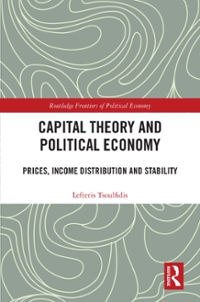Question
Mexicans do not separate from the bottle of soda. The special tax on sugary drinks that the Government introduced last year is giving results for
Mexicans do not separate from the bottle of soda. The special tax on sugary drinks that the Government introduced last year is giving results for public coffers, but it is not working as a deterrent. Despite the fact that soft drinks are more expensive - 10% is the tax rate - their consumption does not decrease. The Ministry of Finance collected 8,163 million pesos during the first six months of 2014, 31.8% more than the same period of the previous year.
Mexico has a severe problem with obesity. It is the second country in the world with more obese and overweight people. The number of cases is also increasing faster each year, in turn accelerating collateral risks: diabetes is the third leading cause of death in the country. In January 2013, the Government launched a shock plan that included the educational front, advertising and even the prosecutor.
Mexico is the largest consumer of soft drinks in the world: 163 liters per person in a year, according to the World Health Organization (WHO). The objective of the so-called Special Tax on Production and Service (IEPS) is that by taxing these products and making their final price more expensive, the consumer would stop buying them, or at least not buy as much. The collection data, the thermometer to measure consumption in turn, show that this fiscal logic is not being fulfilled. During the first full year of application of the tax, 2014, a collection of 18,254 million pesos was recorded, 40% more than the forecasts made by the Government.
"These products form a very important part of the consumption of Mexicans, of their diet. Above all, from the poorest layers. It is an inelastic demand. In other words, despite an increase in its price due to the tax, its consumption does not decrease. Possibly they stop buying other products such as clothing or appliances, to continue buying these. Eating healthy is expensive in Mexico and soft drinks, despite the tax, continue to be more affordable", defends Jos Luis de la Cruz, director of the Institute for Industrial Development and Economic Growth.
Despite the fact that inflation is at historic lows in Mexico -below 3%- , the price of certain foods has registered strong increases in recent months. Beef increased 23% in January, chicken climbed 6% and eggs 8.8%.
A recent study by the University of North Carolina and the National Institute of Public Health (INSP) established that sales of sugary drinks fell an average of 6% during 2014. The industry in the sector, which has fiercely opposed the tax arguing that it was not very useful in the field of public health, he also presented his own results. The National Association of Producers of Soft Drinks and Carbonated Waters (Anprac) announced that the fall in annual sales was 2.5% and that, however, the impact caused a loss of 1,700 jobs.
The INSP study analyzed the purchasing habits of the population of 53 Mexican cities with at least 50,000 inhabitants. "We rely on this report, which is the most accurate because it specifically studies the beverages subject to the tax. In the work it was found that the rate of descent is progressive. In December, there was a 12% drop in sales," says Fiorella Espinosa, spokesperson for the association El Poder del Consumidor.
The data from the soft drink employers, however, say that Mexicans have barely cut 6.2 calories of the 3,024 they consume daily.
Who are the economic agents involved?
Why did the collection increase more than expected?
Who will be most affected by the increase in the price of soft drinks?
Would you drop the tax? Why?
What do you propose to reduce the consumption of soft drinks in society?
Is it valid for governments to impose taxes to inhibit a type of consumption or conduct?
What is the opportunity cost?
What is your position regarding this public policy? Argue
Step by Step Solution
There are 3 Steps involved in it
Step: 1

Get Instant Access to Expert-Tailored Solutions
See step-by-step solutions with expert insights and AI powered tools for academic success
Step: 2

Step: 3

Ace Your Homework with AI
Get the answers you need in no time with our AI-driven, step-by-step assistance
Get Started


